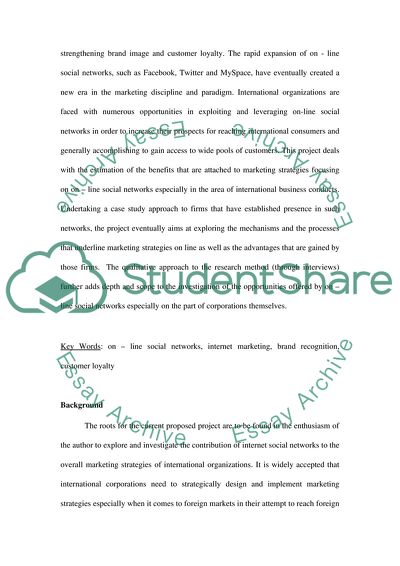Cite this document
(Social Networks Contribution to Organizational International Marketing Research Proposal, n.d.)
Social Networks Contribution to Organizational International Marketing Research Proposal. Retrieved from https://studentshare.org/marketing/1729808-how-can-businesses-profit-from-facebook-and-expend-their-marketing-startegies-through-social-networks
Social Networks Contribution to Organizational International Marketing Research Proposal. Retrieved from https://studentshare.org/marketing/1729808-how-can-businesses-profit-from-facebook-and-expend-their-marketing-startegies-through-social-networks
(Social Networks Contribution to Organizational International Marketing Research Proposal)
Social Networks Contribution to Organizational International Marketing Research Proposal. https://studentshare.org/marketing/1729808-how-can-businesses-profit-from-facebook-and-expend-their-marketing-startegies-through-social-networks.
Social Networks Contribution to Organizational International Marketing Research Proposal. https://studentshare.org/marketing/1729808-how-can-businesses-profit-from-facebook-and-expend-their-marketing-startegies-through-social-networks.
“Social Networks Contribution to Organizational International Marketing Research Proposal”. https://studentshare.org/marketing/1729808-how-can-businesses-profit-from-facebook-and-expend-their-marketing-startegies-through-social-networks.


